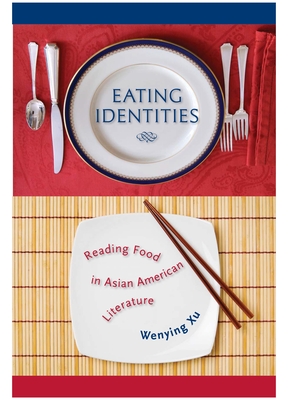Eating Identities

Eating Identities
The French epicure and gastronome Brillat-Savarin declared, "Tell me what you eat, and I will tell you who you are." Wenying Xu infuses this notion with cultural-political energy by extending it to an ethnic group known for its cuisines: Asian Americans. She begins with the general argument that eating is a means of becoming--not simply in the sense of nourishment but more importantly of what we choose to eat, what we can afford to eat, what we secretly crave but are ashamed to eat in front of others, and how we eat. Food, as the most significant medium of traffic between the inside and outside of our bodies, organizes, signifies, and legitimates our sense of self and distinguishes us from others, who practice different foodways.
Narrowing her scope, Xu reveals how cooking, eating, and food fashion Asian American identities in terms of race/ethnicity, gender, class, diaspora, and sexuality. She provides lucid and informed interpretations of seven Asian American writers (John Okada, Joy Kogawa, Frank Chin, Li-Young Lee, David Wong Louie, Mei Ng, and Monique Truong) and places these identity issues in the fascinating spaces of food, hunger, consumption, appetite, desire, and orality. Asian American literature abounds in culinary metaphors and references, but few scholars have made sense of them in a meaningful way. Most literary critics perceive alimentary references as narrative strategies or part of the background; Xu takes food as the central site of cultural and political struggles waged in the seemingly private domain of desire in the lives of Asian Americans. Eating Identities is the first book to link food to a wide range of Asian American concerns such as race and sexuality. Unlike most sociological studies, which center on empirical analyses of the relationship between food and society, it focuses on how food practices influence psychological and ontological formations and thus contributes significantly to the growing field of food studies. For students of literature, this tantalizing work offers an illuminating lesson on how to read the multivalent meanings of food and eating in literary texts.PRP: 304.32 Lei
Acesta este Pretul Recomandat de Producator. Pretul de vanzare al produsului este afisat mai jos.
273.89Lei
273.89Lei
304.32 LeiLivrare in 2-4 saptamani
Descrierea produsului
The French epicure and gastronome Brillat-Savarin declared, "Tell me what you eat, and I will tell you who you are." Wenying Xu infuses this notion with cultural-political energy by extending it to an ethnic group known for its cuisines: Asian Americans. She begins with the general argument that eating is a means of becoming--not simply in the sense of nourishment but more importantly of what we choose to eat, what we can afford to eat, what we secretly crave but are ashamed to eat in front of others, and how we eat. Food, as the most significant medium of traffic between the inside and outside of our bodies, organizes, signifies, and legitimates our sense of self and distinguishes us from others, who practice different foodways.
Narrowing her scope, Xu reveals how cooking, eating, and food fashion Asian American identities in terms of race/ethnicity, gender, class, diaspora, and sexuality. She provides lucid and informed interpretations of seven Asian American writers (John Okada, Joy Kogawa, Frank Chin, Li-Young Lee, David Wong Louie, Mei Ng, and Monique Truong) and places these identity issues in the fascinating spaces of food, hunger, consumption, appetite, desire, and orality. Asian American literature abounds in culinary metaphors and references, but few scholars have made sense of them in a meaningful way. Most literary critics perceive alimentary references as narrative strategies or part of the background; Xu takes food as the central site of cultural and political struggles waged in the seemingly private domain of desire in the lives of Asian Americans. Eating Identities is the first book to link food to a wide range of Asian American concerns such as race and sexuality. Unlike most sociological studies, which center on empirical analyses of the relationship between food and society, it focuses on how food practices influence psychological and ontological formations and thus contributes significantly to the growing field of food studies. For students of literature, this tantalizing work offers an illuminating lesson on how to read the multivalent meanings of food and eating in literary texts.Detaliile produsului








